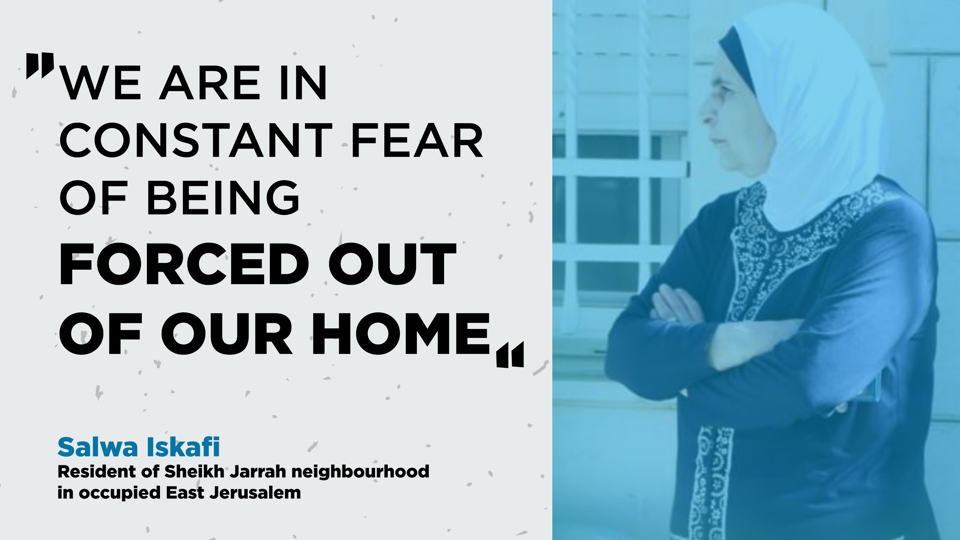In the words of Salwa Iskafi: “We are in constant fear of being forced out of our home”
Date:

Salwa Iskafi, 62, has been living in the Sheikh Jarrah neighbourhood in occupied East Jerusalem since 1976. Along with other families who have been living in Sheikh Jarrah for decades, Salwa and her family are at risk of losing their home to Jewish settlers after an Israeli court ordered their eviction. If it takes place,the eviction will violate Israel's obligations under international law. While implementation of the court order was put on hold by Israel's Supreme Court amid the current escalation of violence, Salwa and her family live in constant fear of losing the only home they have known for decades.
"I’ve been living in this house since I got married in 1976. This house belongs to my husband’s family, who owned it since 1956 when they were forcibly displaced from the village of Baqaa.
Fourteen members of my family live in this house. My married sons cannot afford to rent their own place, so they live with us, along with their wives and children. With the court ruling looming over us, we are in a constant state of apprehension and fear. I keep thinking where can we go? What will become of my grandchildren? We simply do not have any other place to go.
The tensions are high in our neighbourhood between the residents and settlers. I am very worried about my husband, children and grandchildren. My sons want to go out and protest with people who have come from everywhere to express their solidarity with us. Many were tear-gassed and dispersed by the Israeli forces. The settlers also keep harassing the people of the neighbourhood and those who come to express solidarity with them. They beat up everyone; youth, women or children, anyone they see. They have blocked the streets. We are continuously exposed to tear gas. There is continuous shooting. My grandchildren cannot even do their homework. We are alert all the time, barely sleep, always following the news on TV, Facebook, longing to hear some reassuring news at last.
We women suffer psychologically even more than the others do during this crisis. We endure long periods of time staying at home and dealing with all the stress and tension. We rarely dare to venture out. When we do, we risk being harassed by settlers. One day, while I was picking fruits in my neighbour’s house, a settler started threatening me, shouting at me to leave. I have not been able to go see my daughters for a long time now. We cannot continue living like this.
However, I am touched to see that many people around the world is in solidarity with us, expressing their rejection of this injustice. This is our only home, and I am hopeful the court will eventually rule in our favour.”